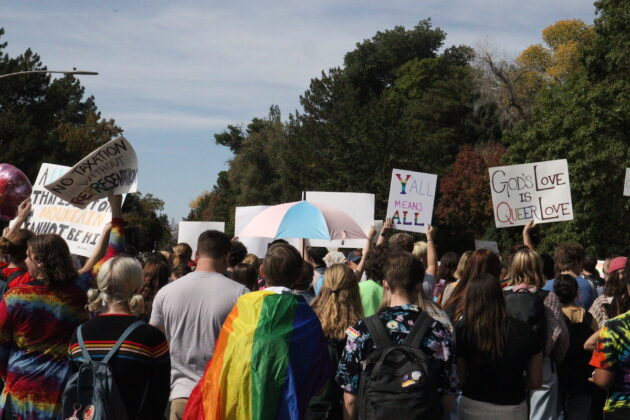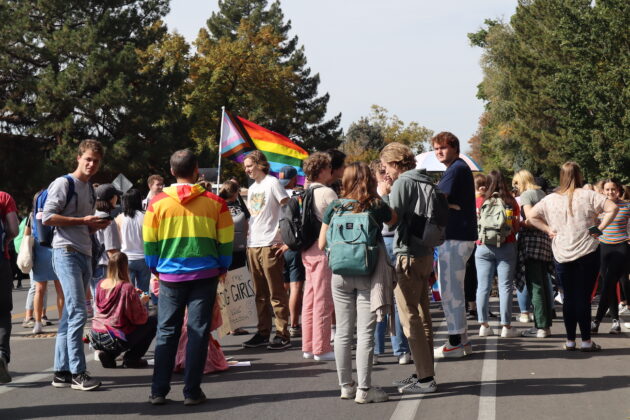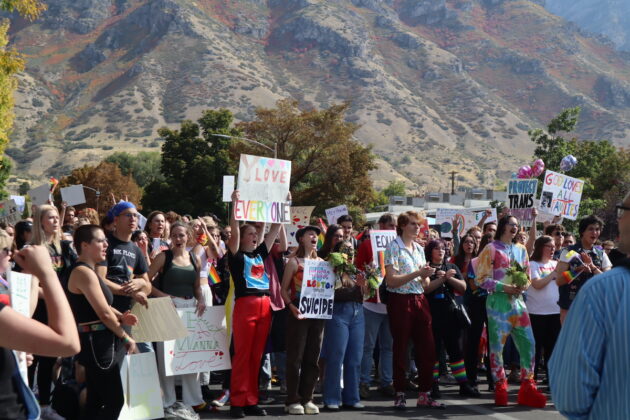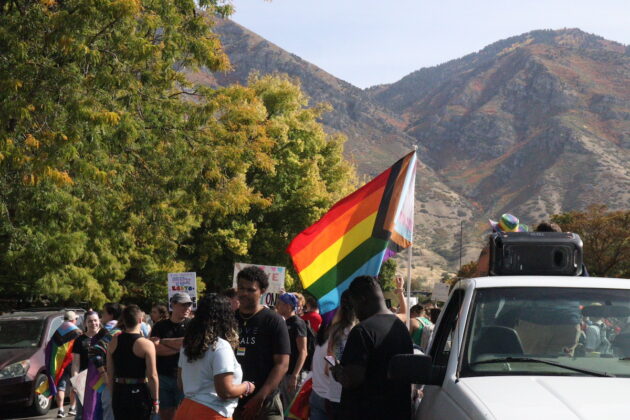BYU students joined a national movement and walked out of their classes on Oct. 11 to protest the discrimination of LGBTQ+ students at institutions with religious exemptions from Title IX.
The walkouts, which took place on National Coming Out Day, were part of a national movement called Strikeout Queerphobia.
The walkout was organized by the Black Menaces and the Religious Exemption Accountability Project, a group that is working to ensure equality for LGBTQ+ students at religious schools.
More than 150 BYU students, faculty and alumni gathered on 800 North, just south of the campus duck pond.
The protest lasted for over an hour and featured guest speakers, including BYU alumni who identify as members of the LGBTQ+ community.
At the beginning of the protest, participants were urged to take part in four minutes of silence, before being led in chants and rallying cries by leaders standing in the bed of a truck.
Speakers told stories of their own experiences as LGBTQ+ students at BYU as well as the stories of students who wished to have their story shared but remain anonymous.
One speaker read a portion of the Civil Rights Act of 1964, which prohibited discrimination on the basis of race, religion, sex, national origin and more.
Title IX is a federal law prohibiting discrimination and exclusion on the basis of sex. BYU’s Title IX website says, “Title IX applies, with a few specific exceptions, to all aspects of federally funded education programs or activities.”
The US Department of Education lists one such exemption, saying that Title IX does not apply to educational institutions controlled by religious institutions if it is “inconsistent with the religious tenets of the organization.”
Nate Byrd, Public Relations Director of the Black Menaces, said, “We think that religious freedom is important, but not as a weapon against other people.”
Who are The Black Menaces?
The Black Menaces, formed in February of 2022, is a group of black BYU students who have gained national attention for their viral videos on social media platforms.
“We highlight overt and covert racism, homophobia, xenophobia, sexism and more through questions,” says the group’s website. “We share the stories and experiences of any and all marginalized students.”
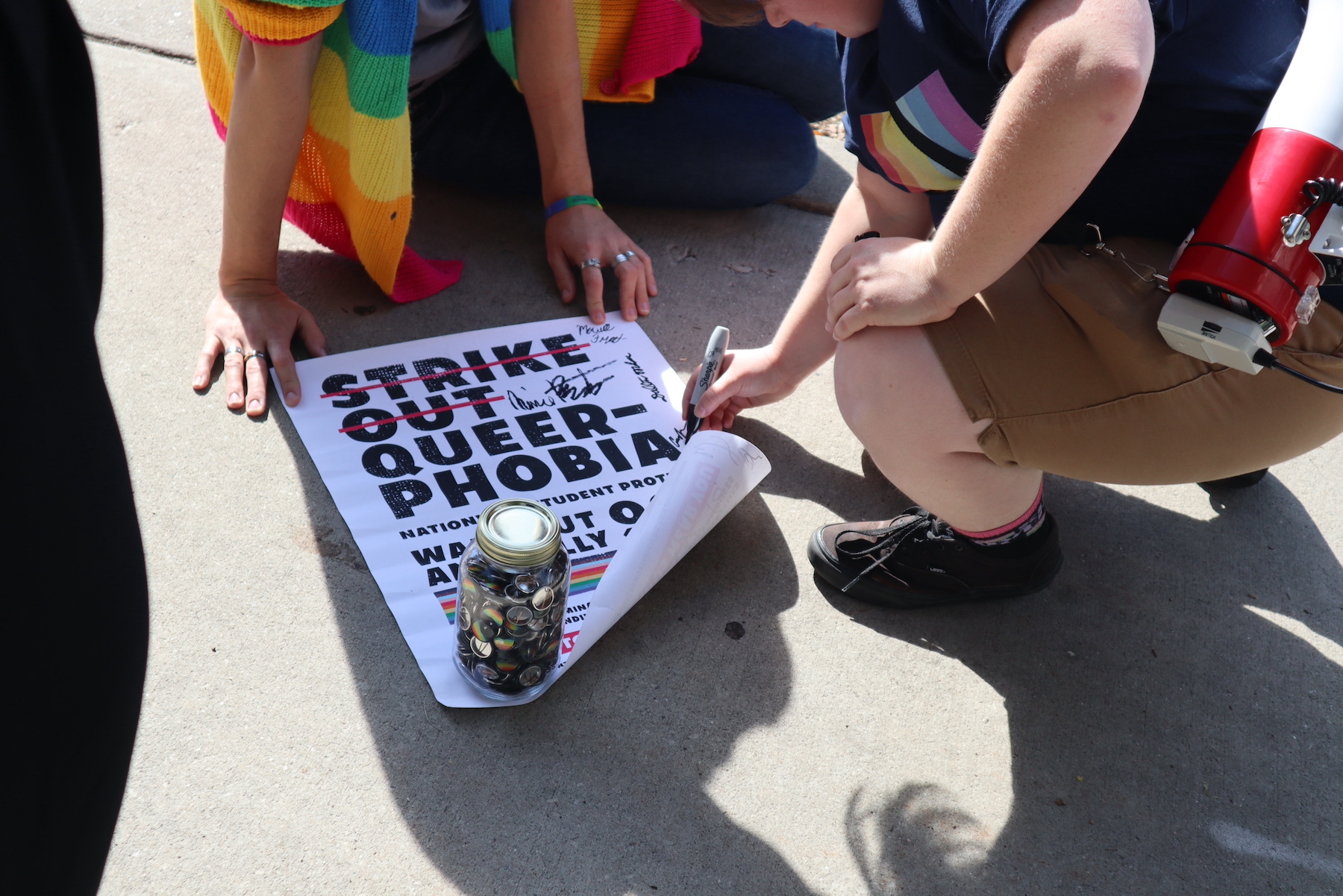
“It’s important to me because it’s a continuation of the struggles that have already been fought,” Byrd said of the protest.
Just after noon, Carolyn Gassert, the president of LGBTQ+ group Understanding Sexuality, Gender and Allyship, took the megaphone to announce that the protest had officially started, saying that there were schools from Hawaii all the way to the east coast participating.
At BYU, the home of the Black Menaces, the group decided to reach out to groups of LGBTQ+ students on campus to aid in spreading the word for the walkout.
Leadership from LGBTQ+ groups at BYU, including Cougar Pride Center and USGA, assisted in speaking to participants and leading them in chants.
Rin Butler, one of the vice presidents of USGA, said, “I want to make sure that queer students that come after us have the same rights as every other student on every other campus.”
What is USGA?
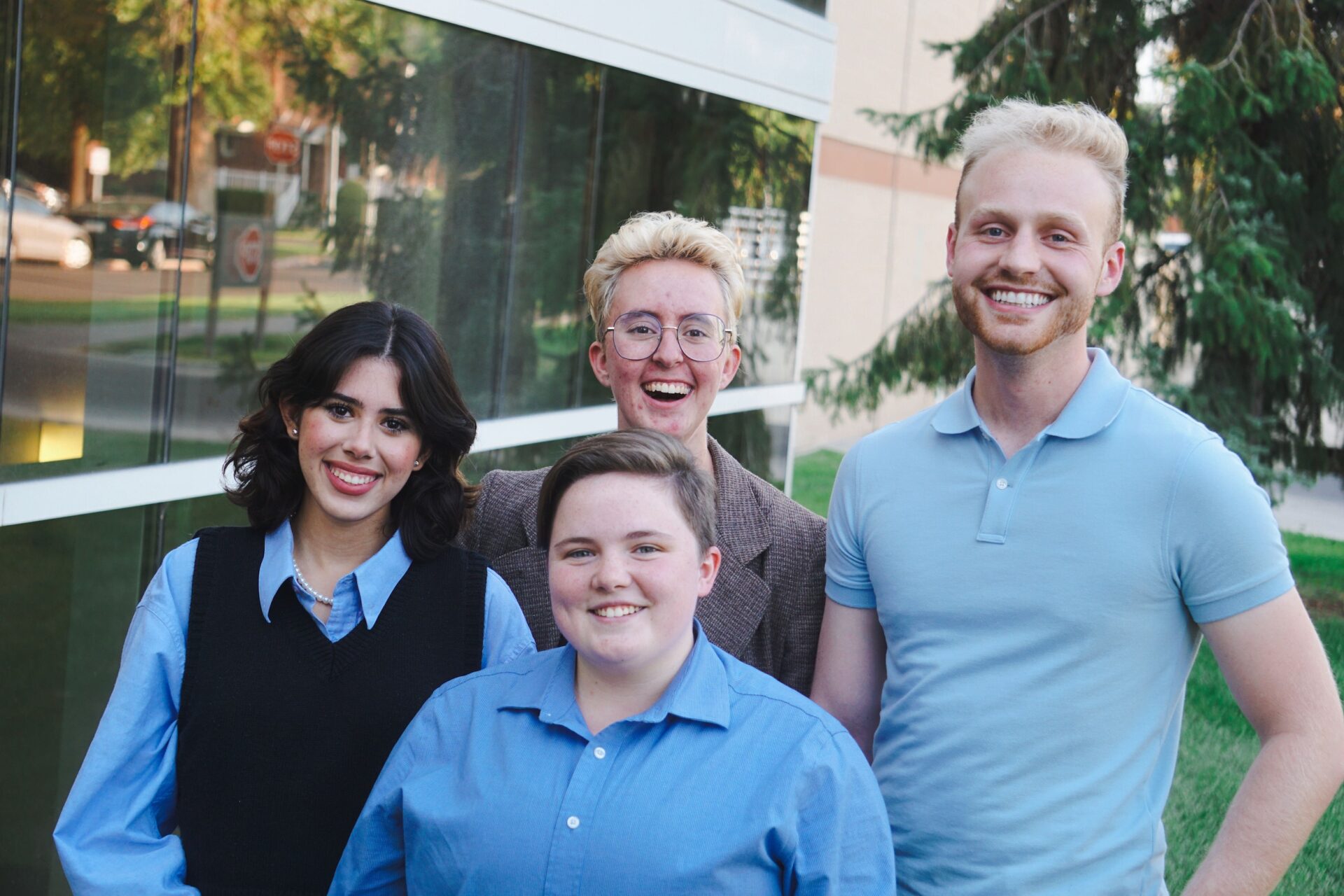
Presidency members from Understanding Sexuality, Gender and Allyship work to bring awareness to resources for LGBTQ+ students.
USGA was founded in 2010 and is one of the longest-standing LGBTQ+ organizations at BYU according to their website. USGA’s mission statement clarifies that it is a group intended to “enhance the BYU community by providing a safe space for open, respectful conversation on intersectional LGBTQ+ topics.”
Gassert said she has been involved with the group for about five years. She said she believes it is important for incoming students to know that they are not alone and that they are loved. “We want to create a space where people can come and feel like they belong,” Gassert said.
“It’s a community of queer students, it’s a community of allies and it’s a community of BYU students,” Vice President Hayden Hall said. “The simplest way to put it is that we’re just a group of friends.”
USGA is run by BYU students, such as Gassert, Butler and Hall, who volunteer their time to plan, promote and execute weekly activities for LGBTQ+ students and allies.
USGA’s board includes several current and former BYU faculty and staff members, such as recent retiree Dr. Roni Jo Draper, who was present at the protest.
Draper first came to BYU in 2000, and has been involved with USGA for over eight years. Draper said that there have been noticeable changes made since she first arrived at BYU, but said, “As a people, we’re still dealing with a lot of mistrust issues or biases that often don’t allow us to see LGBTQ+ individuals as whole individuals.”
What are some resources for LGBTQ+ students?
To educate others and bring awareness to available resources, Hall said USGA often works with other on-campus LGBTQ+ friendly groups. Recently, USGA collaborated with the RaYnbow Collective and other groups to compile a list of resources.
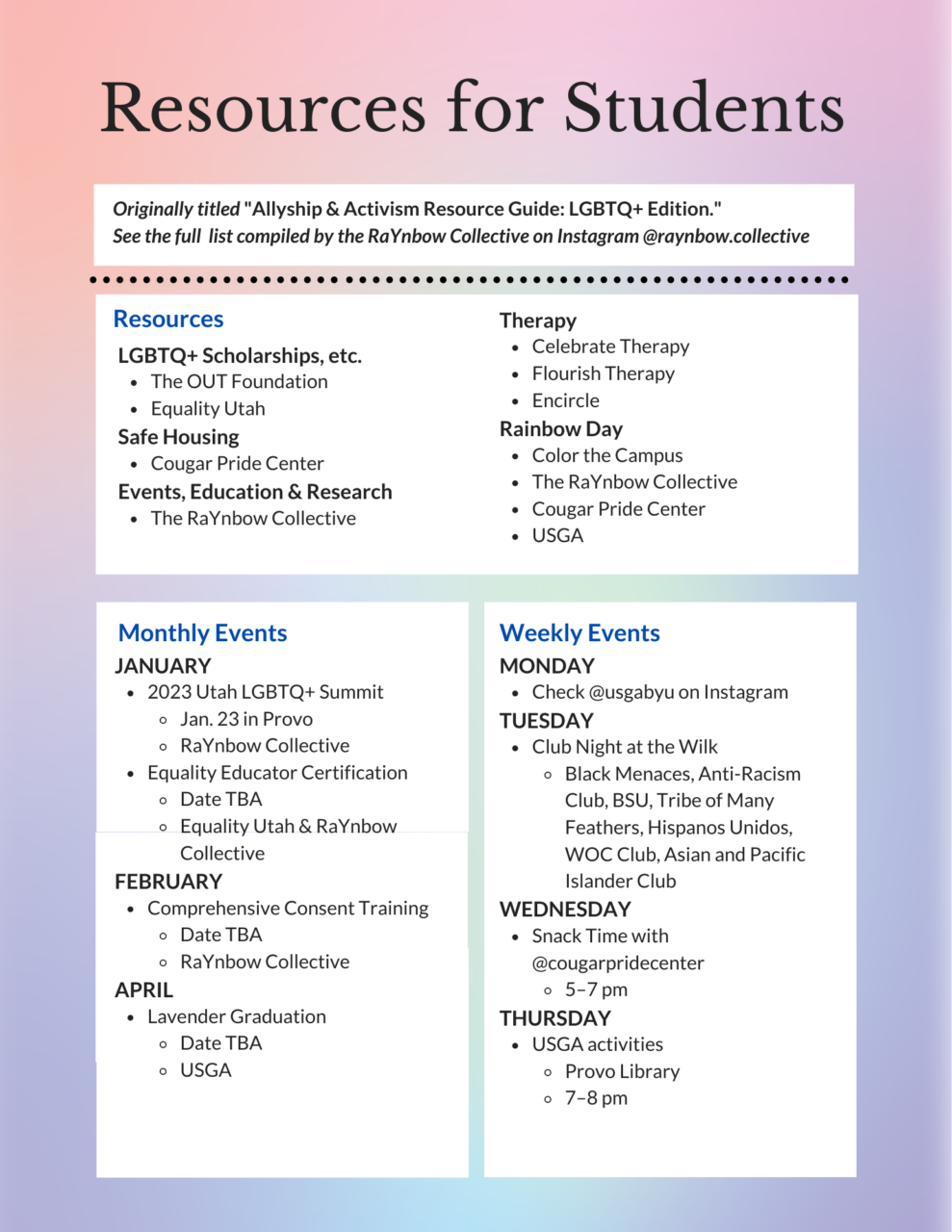
Draper said students should not feel limited to looking for support in just one place. She noted that there are plenty of resources for LGBTQ+ students, including Encircle, Flourish Therapy and BYU’s Counseling and Psychological Services.
USGA has helped its presidency members find their community, and they say they hope it can help others as well.
“When I first got involved with USGA, I was not in a good place with who I was,” Gassert said. “It has empowered me to be able to not only be okay with my identity, but be proud of it. I do think that USGA saved my life.”
“We love you,” Byrd said to LGBTQ+ students at BYU. “We stand with you. Hang in there.”

